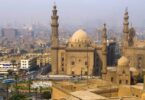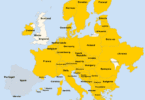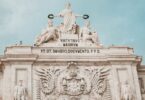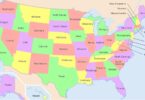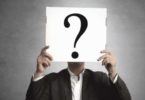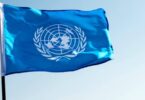Quiz on basic principles, concepts and meaning of democracy and the people who shaped the democratic system.
The literal meaning of democracy is
(a) Authority of government
(b) Power of the people
(c) Will of rulers
(d) power of the representatives
A Republic is
(a) Only a democratic state
(b) Presidential system governing state
(c) Parliamentary system governing state
(d) State where the President is not an inherited
The States General is the parliament of
(a) Iceland
(b) Norway
(c) Netherlands
(d) Romania
The two forms of democracy are
(a) Parliamentary and Presidential
(b) Direct and Indirect
(c) Monarchical and Republican
(d) Parliamentary and King
Who is considered the father of the constitution?
(a) James Madison
(b) Florence Nightingale
(c) Charlie Chaplan
(d) Enrico Caruso
Direct Democracy is a system of government in which
(a) People choose Civil Servants
(b) People directly elect their representatives
(c) People take part directly in the policy making and administration of the country
(d) Government officials consult people on various appointments.
The United Kingdom is a classic example of a/an
(a) aristocracy
(b) absolute monarchy
(c) constitutional monarchy
(d) polity
The two basic principles of the liberal theory of democracy as emphasized by John Locke are
(a) Universal Adult Franchise and the Right to Property
(b) Representative and Workers’ Rights
(c) Popular Sovereignty and constitutional government
(d) Women’s suffrage and popular sovereignty
When was democracy established in Nepal ?
(a) 2006
(b) 2004
(c) 2002
(d) 1990
In the ancient period, direct democracy existed in
(a) India
(b) China
(c) Greece
(d) Britain
France is a __
(a) inherited
(b) Autocracy
(c) Monarchy
(d) Democracy
Secularism refers to –
(a) Separation of religion from the state
(b) Support to majority
(c) Humiliate minorities
(d) Preference to one religion
What is the full form of EVM?
(a) Electron Validation Machine
(b) Electronic Voting Machine
(c) Electronic Validation Management
(d) Early Voting Movement
Related: Countries and their Currencies
Democracy is a form of government in which rulers are:
(a) Nominated
(b) Elected
(c) not elected
(d) not selected
__ is better than other forms of government because it allows us to correct its own mistakes.
(a) Democracy
(b) Monarchy
(c) Aristocracy
(d) Autocracy
Which one country is still governed by a monarch?
(a) Afghanistan
(b) Iran
(c) Iraq
(d) Saudi Arabia
The concept of a written constitution was first introduced in
(a) France
(b) Russia
(c) China
(d) USA
China is a __
(a) Aristocracy
(b) Autocracy
(c) Monarchy
(d) Democracy
Related: Malaysia General Knowledge Quiz
The success of democracy depends upon the
(a) Right to criticize
(b) Right to association
(c) Right to personal Liberty
(d) Right to property
What is called the backbone of democracy?
(a) Interest groups
(b) Pressure groups
(c) Political parties
(d) Legislature
Stability of the government is assured:
(a) Parliamentary Form of Government
(b) Presidential Form of Government
(c) Plural Executive System
__ government must be based on a free and fair election where those currently in power have a fair chance of losing.
(a) Democratic
(b) Monarchic
(c) Aristocratic
(d) Autocracy
Related: Asian country Flags
__ gave power and grandeur to Athenian Democracy
(a) Pericles
(b) Thales
(c) Protagoras
(d) Anaximander
In a democratic society there exists
(a) Democratic government
(b) Aristocratic government
(c) Monarchical government
The United States is a republic because __
(a) lt is a democratic country.
(b) It is a Parliamentary democracy.
(a) The head of the state is elected for a definite period
(d) All of these
In which form of government the final decision-making power lies with those elected by the people?
(a) Autocratic
(b) Democratic
(c) Aristocratic
(d) Monarchic
The most suitable type of party system is
(a) One-party system
(b) Bi-party system
(c) One party dominant system
(d) Multi parry system
Democracy is based on the principle of
(a) Legal sovereignty
(b) Popular sovereignty
(c) dc Jure sovereignty
(d) Political sovereignty
A republic is a democratic state having __ as the head of the state
(a) Nominated person
(b) Hereditary person
(c) Elected person
(d) Appointed person
Which among the following countries does not have a documented constitution?
(a) India
(b) France
(c) America
(d) Britain
In which type of government has to explain its actions and defend its decisions to the people.
(a) Democratic
(b) Monarchic
(c) Aristocratic
(d) Autocratic
In a democratic state, leaders must be
(a) Selfish
(b) Corrupt
(c) Honest and active
(d) Inactive
Postal voting is otherwise called:
(a) external voting
(b) secret voting
(c) plural voting
(d) proxy voting
The term politics is derived from the word ___
(a) polis
(b) police
(c) state
(d) society
Who is responsible for coining the concept of democratic government?
(a) Greek
(b) British
(c) French
(d) American
In a/an government, political powers are distributed among as many citizens as possible
(a) aristocratic
(b) autocratic
(c) democratic
(d) plutocratic
__ government rules within limits set by constitutional law and citizens’ rights.
(a) Monarchic
(b) Democratic
(c) Aristocratic
(d) Autocratic
Folketing is the parliament of
(a) Italy
(b) Denmark
(c) Sweden
(d) Norway
Name the author of the work Politics?
(a) Ranke
(b) Aristotle
(c) Plato
(d) Cicero
A state cannot exist without
(a) Democratic government
(b) Parliament government
(c) Presidential government
(d) Some kind of government
Japan’s Parliament is known as
(a) Diet
(b) Dail
(c) Yuan
(d) Shora
Which one of the following is not an element of the state?
(a) Population
(b) Land
(c) Army
(d) Government
Which Greek philosopher said, justice, virtue and rights change in accordance with constitutions and circumstances?
(a) Plato
(b) Cicero
(c) Aristotle
(d) Sophocles
Who said” the Constitution is the aggregate of laws and customs”?
(a) Dicey
(b) Bryce
(c) Fine
Which one does not contribute to the formation of the international government?
(a) Expansion of international trade
(b) Establishment of an international organization
(c) Inter-state rivalry
(d) Means of communication
“ A Constitution is not made, it grows” said by
(a) Dicey
(b) Strong
(c) Maine
A Secular State is one which _
(a) Has no religion of its own
(b) Is irreligious
(c) Is anti-religion
(d) Takes into consideration the religious sentiments of the people
Who is the Guardian of the Constitution?
(a) President
(b) Parliament
(c) Supreme Court
Related: middle ages quiz multiple choice
A Constitution can be only
(a) Written
(b) Custom and usage
(c) Both written and unwritten
A Preamble to the Constitution means
(a) A Preface
(b) An introduction
(c) A justiciable
A country is called a Republic, when:
(a) The head of the country is an elected one
(b) Absence of any privileged classes
(c) The Prime Minister is elected directly
Which one of the following is the first written document relating to the fundamental rights of citizen?
(a) Magna Carta
(b) Preamble
(c) Fundamental duties
“Federation is a union without unity” – who said?
(a) Jahari
(b) Jennings
(c) Dicey
__ is the way by which individuals give approval to the government.
(a) Asking for rights
(b) Following the duties
(c) Paying tax
(d) Election
Related: Globalization Quizzes
What is “Magna carta”?
(a) Charter of rights
(b) Economic Journal
(c) Social Magazine
Which writ is called the bulwark of personal liberty?
(a) Habeas Corpus.
(b) Mandamus
(c) Prohibition
(d) Quo-warranto
This enables citizens of a country to participate in decision making and control the government:
(a) Government
(b) Parliament
(c) Judiciary
(d) Executive
__ is the way by which individuals give approval to the government.
(a) Asking for rights
(b) Following the duties
(c) Paying tax
(d) Election

